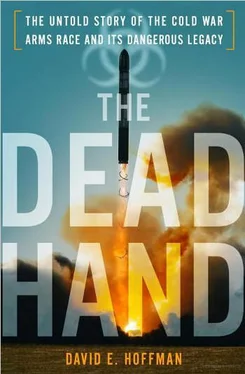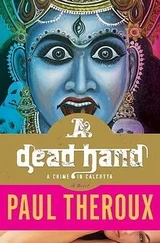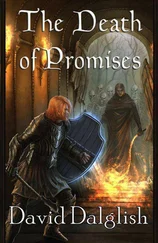But Pasechnik’s debriefing opened up the British thinking to a much broader spectrum of weapons, ranging from tactical to strategic. The Soviet program was far more ambitious than the West had ever imagined. This was evident from the moment Pasechnik began talking about the pathogens he knew the most about, such as Yersinia pestis , the agent that causes plague. Pasechnik said that great emphasis had been placed on the perfection of pneumonic plague as a weapons agent by optimizing its production, storage, aerosol dissemination and resistance to antibiotics. Pasechnik said his institute had worked on models of the plague agent to create a kind of super-plague.
One of the most chilling disclosures Pasechnik made was that the Soviet military had already weaponized plague and was pouring it into some kind of warheads, which had to be refilled every few months. In order to produce enough agent, the industrial capacity had been scaled up, reaching two metric tons a year. He revealed the Soviets had tested the plague agent on baboons on Vozrozhdeniye Island in the Aral Sea as recently as 1989.
As the secrets spilled out, the mention of plague carried special weight. “You do not choose plague to put on a battlefield,” Davis said. “You choose plague because you’re going to take out the other person’s country. Full stop. That’s what it is about.” 10
“Plague is highly transmissible. Remember, one third of the population of Europe disappeared in the 13th Century with plague. And it’s quick. If you don’t get treatment within 12–24 hours at best, after symptoms appear in pneumonic plague, you will die, whether we give you antibiotics or not. It’s over.”
This was Pasechnik’s message. The target of the plague weapon was unprotected populations. “That was the gift, to realign the thinking, to move it back to the traditional use of biological weapons as a weapon of mass destruction,” Jones said.
Later, Pasechnik told the British his institute was tackling an assignment to develop a method of aerosol distribution that would work from a vehicle flying two hundred feet above the ground. Pasechnik did not work on the vehicle itself, only the dissemination system, but the British had no difficulty guessing what kind of weapon flew at two hundred feet: a cruise missile. The fast-flying, low-altitude cruise was a modern weapon, feared for its ability to fly under radar. A cruise missile carrying deadly biological agents could be launched from a submarine, release the pathogens somewhat away from the target, and then disappear. The thought of it startled Pasechnik’s debriefers.
Over months of conversations, a picture emerged not only of the traditional pathogens, but also of the more advanced genetic engineering underway at Koltsovo and Obolensk. Although Pasechnik’s institute had only a specialized role, he was aware of the broader effort to boost resistance to antibiotics. Pasechnik also told the British of the work being done to fool the body’s immune system. Pasechnik was careful to delineate where the research had not borne fruit; he noted that improved plague had not been the result of genetic engineering, but rather of conventional genetic selection techniques. Pasechnik also told the British that genetic engineering of tularemia—Domaradsky’s dream—had been a goal, but was unsuccessful in the field tests. 11
Pasechnik knew the people in the system, including the bosses, Alibek and Kalinin, at the Biopreparat headquarters on Samokatnaya Street. He knew the names and missions of the separate military biowarfare facilities in Kirov, Sverdlovsk and Zagorsk. He knew of the massive anthrax factory at Stepnogorsk. Pasechnik’s information showed conclusively the Soviet Union had violated the Biological Weapons Convention and deceived the outside world. The Soviets concealed their misdeeds under layers and layers of disguise, and Pasechnik peeled it away.
The disclosures soon led to a quiet debate in British intelligence and policy circles: did Gorbachev and Shevardnadze, the Soviet reformers, know about the dangerous agents in the test tubes? Pasechnik was perplexed by the frequent questions he got from his debriefers about Gorbachev. He said Gorbachev must have known if Shevardnadze knew. That was how the system worked. And Pasechnik was certain that Shevardnadze had attended some of the high-level meetings in 1988. Davis’s assessment strongly supported this view as well.
If Gorbachev knew, then the British had to question their assumptions about him, too. Thatcher was the first Western leader to declare that Gorbachev was a man with whom she could do business. In Washington, after nearly a year of dithering, Bush was also planning his first summit with Gorbachev. Was this a man they could do business with, or was he the leader of a country and a system that created—and was still creating—the most destructive biological weapons mankind had ever known, in violation of all treaty promises?
In London, the revelations from Pasechnik were summarized into a quick note for the Joint Intelligence Committee. The first recipient of such reports is always Her Majesty, The Queen. The second is the prime minister, who at the time was Thatcher.
In early November 1989, while Pasechnik was still being debriefed, the Berlin Wall crumbled. Over the previous summer, Hungary had opened its border with Austria. Thousands of East Germans had flooded West German embassies in Budapest and Prague. In October, Gorbachev had visited Berlin and signaled that the Soviet Union would not intervene, a lesson drawn from his searing visit to Prague after the Soviet invasion in 1968 and his soul-searching talks with his best friend MlynááY. In an evening torchlight ceremony on that Berlin visit, handpicked party youth activists had stunned Gorbachev by ignoring the hard-line party boss Erich Honecker on the reviewing stand and instead shouting to Gorbachev, “Perestroika! Gorbachev! Help us!” 12Gorbachev had become a beacon of change that was now shaking the very pillars of the empire he ruled. In early November, roiled by public protests, a new government in East Germany permitted travel to the West through Czechoslovakia, prompting tens of thousands of people to crowd the roads. Hastily, new rules for travel were drafted by the government, and the plan was to announce them November 10, but inadvertently the decision was read aloud at a government press conference at the end of the day November 9. 13News reports vaguely suggested that East Germans could get visas to leave the country immediately through border crossings, touching off a frenzy of excitement. Rumors spread that all travel restrictions were being lifted. Thousands of people gathered at the Berlin Wall in the evening. The guards, who had no instructions, just opened the gates, and the Berlin Wall was breached twenty-eight years after it was first erected. The long division of Europe was over.
In Washington, reporters were summoned to the Oval Office at 3:34 P.M. Bush was nervously twisting a pen in his hands. He later recalled feeling awkward and uncomfortable. Ever cautious, he was worried that any comments he made could trigger a Soviet crackdown. The memory of the Tiananmen Square massacre was still fresh. Lesley Stahl of CBS News remarked that “this is a sort of great victory for our side in the big East-West battle, but you don’t seem elated. I’m wondering if you’re thinking of the problems.”
“I am not an emotional kind of guy,” Bush said. 14
In Moscow, Chernyaev wrote in his diary the next day, November 10, “The Berlin Wall has collapsed. This entire era in the history of the socialist system is over.”
After the fall of the wall, even more threatening storms were on the horizon for Gorbachev. The Soviet economy plummeted in 1989; there were acute shortages of goods, along with a grain crisis and declining oil production. Perestroika had not produced better living standards. At a Politburo meeting on the day the Berlin Wall fell, Gorbachev was preoccupied not with Eastern Europe, but the possibility that the Soviet Union would disintegrate, as internal republics began to consider breaking away. The leaders of Estonia and Latvia, two tiny Baltic republics, had told Gorbachev in recent days “they have a feeling that there is no other way than to leave the USSR,” Gorbachev told the Politburo. 15
Читать дальше












